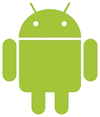The view from DockerCon 2017
ContainerCon
Docker hosted its annual DockerCon conference in Austin, Texas on April 17-20. I arrived on April 16 and headed for registration, hoping to avoid the long lines that would queue up on the first morning of the conference. In the evening, the organizers hosted a dinner for media and analysts, where we mingled with Docker executives and fellow journalists.
I woke up early the next morning and strolled to the venue, which was a 10-minute walk from the hotel. DockerCon is primarily a three-day event, but the first and second days are the main days of the event. Day 1 is dedicated to the community and developers, and Day 2 is dedicated to enterprise customers and partners.
According to Docker, the event includes over 150 speakers, 10+ sponsors, and over 5,500 attendees.
Day 1: The Community Day
On the first day, Solomon Hykes, the founder and CTO of Docker, talked about the new features of Docker, including multi-stage builds and desktop-to-cloud integration. The major highlight of the day was the announcement of two new open source projects: Moby Project and LinuxKit. With these two new projects, Docker continues the trend of opening up its technologies and making them modular, but also opening up the process that it uses to build its own products.
The Moby Project is more or less the Fedora of Docker. Moby is a place where Docker brings all the core components of the platform and works on them in a modular fashion, allowing the ecosystem to improve and letting users pick and choose components to build their own implementation of Docker. The Moby project is intended to support the Docker community. According to Hykes, "Docker is a citizen of this container ecosystem, and the only way for Docker to succeed is if the ecosystem succeeds." From now on, all code contributions to Docker will go through the Moby Project; it's now the upstream for Docker.
LinuxKit is the
...Buy this article as PDF
(incl. VAT)
Buy ADMIN Magazine
Subscribe to our ADMIN Newsletters
Subscribe to our Linux Newsletters
Find Linux and Open Source Jobs
Most Popular
Support Our Work
ADMIN content is made possible with support from readers like you. Please consider contributing when you've found an article to be beneficial.


